
The #CAMSTRAND2018 delegates blog about a recent systematic review of mind-body therapies for Military Veterans with PTSD (Post-Traumatic Stress Disorder).
[read the full story...]
The #CAMSTRAND2018 delegates blog about a recent systematic review of mind-body therapies for Military Veterans with PTSD (Post-Traumatic Stress Disorder).
[read the full story...]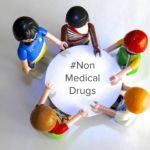
Ian Hamilton and Julia Buxton from the University of York preview the #NonMedicalDrugs event that will take place in York on Friday 16th March 2018.
The meeting will bring together people who can offer personal and professional insights of the extent of the issue and how we can support people who develop problems.
[read the full story...]
This review of risk factors for sleep bruxism identified 9 studies involving a total of 12,454 patients. Strong associations were found for sleep bruxism, GERD and a gene related to serotonergic neurotransmission.
[read the full story...]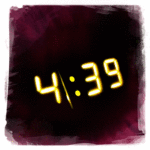
Ahmed Al-Shihabi and Farhana Mann report on a recent twin study that explores the links between loneliness and sleep quality in young adults.
[read the full story...]
Sarah McDonald appraises the Better Sleep Trial (BEST), a pilot RCT which shows that CBT may be a promising treatment for insomnia in people with active psychotic symptoms.
[read the full story...]
Susie Johnson summarises a systematic review that explores the relationship between sleep disruption and postpartum mental illness, which reports a link between self-reported poor sleep during and after pregnancy and the development of postpartum depression.
[read the full story...]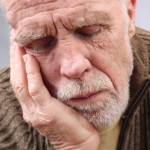
People with dementia caused by Alzheimer’s Disease (ADD) (which is estimated to be around three quarters of people with dementia) often suffer from sleep disturbances. These symptoms cause distress to the person with dementia and to their carers, increase the likelihood of admission to a care home, and are also very difficult for care home [read the full story…]

Good sleep is a crucial part of our physical and mental well-being. We typically spend about a third of our lives asleep but when we miss out on sleep, we can feel fatigued and struggle to concentrate. Sleep problems are generally quite common and have been reported as one of the most common health conditions [read the full story…]
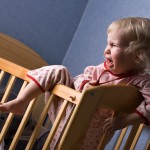
Hands up who doesn’t have an opinion about the best way to help babies get to sleep? It’s been a hotly contested topic in recent years, at dinner parties and playgrounds across the land. Behavioural sleep techniques have been shown to be effective at reducing sleep problems in infants and the associated maternal depression in the [read the full story…]
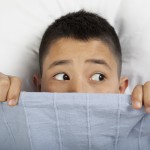
NICE have recently started publishing a series of evidence summaries looking at unlicensed and off-label medicines. The second summary in the series looks at the use of prolonged-release melatonin tablets as a treatment for sleep disorders in children and young people with attention deficit hyperactivity disorder (ADHD). Future mental health summaries include ‘Quetiapine for generalised [read the full story…]